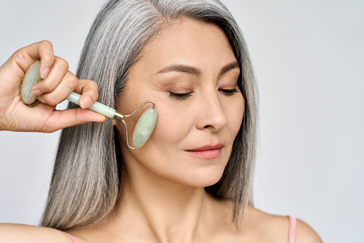What is melatonin and its benefits
Posted by Mike Miryala on

What is Melatonin?
Melatonin is a hormone that helps to regulate the circadian rhythm (24-hour internal clock) of the body to manage your natural sleep cycle. It is naturally produced by the pineal gland in your brain in response to darkness, and it uses the amino acid, tryptophan.
However, melatonin dietary supplements are often made from animals or microorganisms. It is mostly used as a sleep aid to tackle insomnia. People who are battling with sleeping issues usually have low levels of melatonin.
In the US, melatonin is available as an over-the-counter medication, but in other parts of the world, such as Australia and Europe, it requires a prescription.
In addition to improving sleep quality, melatonin also helps to manage blood pressure, cortisol levels, and immune function.
More so, it acts as an antioxidant and some research shows that it improves many health conditions.
Benefits of Melatonin
Melatonin offers many health benefits, even as a dietary supplement:
Reduce Jet-lag Symptoms
Traveling across different time zones can alter your circadian rhythm, especially when you travel eastward or across five or more time zones.
However, research shows that melatonin supplements are effective in reducing jet-lag symptoms. This supplement helps to improve alertness during the day, reduce daytime tiredness, and improve movement coordination.
Most times, the best results are recorded when melatonin supplements are started from the day of travel and taken at the intended bedtime at the destination.
Supports better sleep
Melatonin is commonly used as a natural remedy for insomnia. It is a popular sleep aid, and many studies have shown that melatonin supplementation supports better sleep.
One study conducted on 50 people showed taking melatonin supplements helped people fall asleep faster and enhanced overall sleep quality, especially when taken two hours before bed.
A review of 19 studies in adults and children suffering from sleep disorders showed that melatonin reduced the amount of time it took to fall asleep. More so, this supplement increased total sleep time.
Melatonin has also been studied to help people with delayed sleep phase syndrome. One study shows that taking the melatonin supplement daily for up to four weeks helps to reduce the amount of time needed to fall asleep, advancing the sleep onset time.
However, it was recorded that after discontinuing the supplement, participants returned to their pre-treatment sleeping pattern within one year.
May Increase Levels of Human Growth Hormone
Higher levels of the human growth hormone (HGH) have been shown to increase both muscle mass and strength. This hormone is vital for cellular regeneration, supplementing with melatonin helps to increase the level of HGH in men.
One study conducted on eight men found that high (5 mg) and low (0.5 mg) doses of melatonin caused an increase in HGH levels.
Another study conducted on 32 people also showed that melatonin supplements produced a similar result.
Could reduce symptoms of seasonal depression
Seasonal depression, also called Seasonal affective disorder (SAD) is a common condition, affecting up to 10% of the world’s population.
This form of depression is usually related to changes in the seasons and the symptoms typically appear in the late fall to early winter.
Some research shows that seasonal depression can be triggered by seasonal light changes, which affect your circadian rhythm.
Melatonin is widely known to regulate circadian rhythm and low doses are used to decrease the symptoms of seasonal depression.
One study conducted on 68 people shows that alteration in circadian rhythm results in seasonal depression, but melatonin capsules were seen to reduce symptoms of this condition.
However, more studies are still ongoing to determine the impact of melatonin on seasonal depression.
May help treat GERD
You can suffer symptoms like heartburn, belching, and nausea when you have gastroesophageal reflux disease (GERD). This condition is often a result of stomach acid flowing back into the esophagus.
But the secretion of stomach acids has been shown to be blocked by melatonin. This supplement also decreases the production of nitric oxide- a compound that allows stomach acid to enter the esophagus by relaxing your lower esophageal sphincter.
Can Promote Eye Health
The antioxidant properties of melatonin help to prevent cell damage and this keeps your eyes in good condition.
Research suggests that melatonin could treat conditions like age-related macular degeneration (AMD) and glaucoma. That’s one of the major health benefits of melatonin.
One study conducted on 100 people living with AMD, taking 3mg of melatonin supplement for 6-24 months delayed age-related eye damage, protected the retina, and preserved visual clarity.
Another study on rats found that melatonin caused an improvement in retinopathy- a condition that affects the retina and can lead to loss of vision.
Does Melatonin Support Shift Workers?
If you’re a shift worker, you may feel sleepy at work and find it hard to sleep during the day after your shift ends. This is mainly because your circadian rhythm has been disrupted.
You may want to fall back to melatonin, but there is little evidence to support the notion that melatonin can adjust the sleep schedule in shift workers who stay active at night and sleep during the day.
Taking melatonin supplements doesn’t appear to improve alertness during shift work or improve sleep after shift work.
Dosage
You can take melatonin supplements in doses of 0.5 – 10 mg per day, but it is best to stick to the recommended dosage on the product label to avoid negative effects.
However, you can start with a lower dose and increase gradually to find what works best for you.
You can take the melatonin supplement 30 minutes before bedtime, especially if you desire to improve your sleep quality.
But if you’re taking this supplement to correct your circadian rhythm and maintain a regular sleep pattern, then you should take it 2-3 hours before going to bed.
Safety
Melatonin supplements have been shown by research to be safe and non-addictive. However, it is not recommended for adolescents and children, as there are concerns that this supplement may affect gonadal development.
Also, pregnant women, nursing mothers, and women who are trying to conceive should avoid taking the melatonin supplement. High doses can also have an inhibitory effect on ovulation.
However, ensure you speak with your healthcare provider before using a melatonin supplement.
Take note that this supplement may interact with other drugs and supplements, including:
- Drugs that suppress the immune system, such as cyclosporine
- High blood pressure medication
- Benzodiazepines, such as diazepam and others
- Antidepressant medication
- Corticosteroids (used for conditions such as arthritis)
- Herbs such as valerian and kava, which are known to induce sleepiness or drowsiness.
The 2015 guidelines by the American Academy of Sleep Medicine advise against the use of melatonin in people living with dementia. This supplement may stay longer in older people than children and may cause daytime drowsiness.
Final Remark
Melatonin is a popular supplement that offers a plethora of health benefits. It is well-known to improve sleep quality, but it also reduces symptoms of seasonal depression, helps to treat GERD, improves eye health, and supports many other functions.
The recommended dosage is between 0.5 – 10 mg per day, but it is best to follow the recommendation on the product label.
However, it is important to avoid self-treatment and delaying standard care when needed. Whenever you consider using the melatonin supplement, always ensure you consult your healthcare provider first.

Mike Miryala, Head Pharmacist at CoBionic
Here are some health supplements that you might also like:
NeuroRevive
- Advanced Supplement to Fight Brain Aging & Memory Decline At Any Age
- Contains Vitamin B6, B12 and Folate from NMN, Gingko Biloba, Lion's Mane and 5 More Brain-Boosting Ingredients
- Increases NAD+ and Fights Neurodegeneration
- Elevates Neurotransmitters
Turmeric Soothe
- Turmeric is the fastest & strongest way to alleviate inflammation, support digestion, and relieve pain
- Contains the purest, air-dried curcumin plus a patented mechanism for improved absorption
- Boosts immune system








